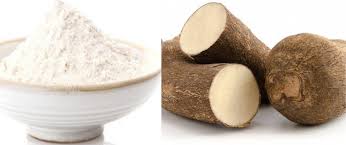Yam is an edible tuber and a plant specie in the genus Dioscorea (Family: Dioscoreaceae).
Most of the yams consumed in the world are produced in Africa. Africa produces 90 – 95% of global consumption, while Nigeria produces about 70% of productions in Africa.
Yam can be processed into many derivative products such as yam chips, yam starch, yam pellets, yam flour, etc.
Pounded yam is a popular delicacy produced from boiled yam tubers, and is consumed by many people across Africa. However, a lot of people, especially the middle class find it difficult to prepare pounded yam the traditional way which involves boiling yam, pounding it in a mortar using a piston, until it becomes a succulent dough.
The growth of the middle class in Africa in general, and Nigeria to be specific, has led to a need for hygienically processed, easy to prepare and well packaged food products like yam flour,, maize flour, parboiled rice, garri, packaged water, etc.
With yam flour, anyone can quickly prepare pounded yam with going through the difficult and hectic traditional process. It is worthy to note that yam flour has many other uses such as raw material for the production of some biscuits, cakes, breads, etc. It also has some industrial uses such as for production of adhesives. This reality has led to a high demand for the product, making its production a viable profitable venture.
With few producers focussing on the production of yam flour in Nigeria, there exists a large gap that needs to be filled by aspiring entrepreneurs in the country. This supply gap will continue to grow as the population of the country grows.
Setting Up Cost
We prepared a well researched business plan that envisaged a yam flour production plant with a capacity of producing 2000Kg of yam flour per day.
You will need a building to set up your factory in. You will also need an industrial borehole as your water source. Cost of these depends on your location.
The machinery you need include:
- Hammer milling machine
- Dryer
- Par Boiler machine
- Chipping machine
- Washing machine
- Sieving machine
- Packaging machine
- Hand Coding Machine
- Generator
You will also need vehicles for transporting your products to customers. It is very important to build a strong distribution channel for distributing your products to customers. The success of this business is deeply rooted in the quality of your product and your ability to reach and quickly sell to customers.
Profitability
Average profit realizable from processing 1000Kg of yam flour is N50,000. The processing plant referenced in this business plan has the capacity to produce 2000Kg per day. If the factory works for 20 days in a month and at 50% of the capacity, which gives 20,000Kg per month, the company can make a gross profit of 20 X N50,000 = N1,000,000 monthly.
Get Our Yam Flour Production Business Plan
Buy our Yam Flour Production business plan at the promo price of N10,000 only and get the following free e-book.
Start, Run and Grow Your Business: This e-book is loaded with tips and advice for anyone starting a new business, and existing businesses looking to take their company to the next level.
Note: Promo price ends soon, after which you will have to pay the original price of N20,000.

Good day. Please how much in estimates will it cost to set up a yam flour factory? Thanks
Good day.
It depends on the capacity you want to start with. You can start with as low as N2million.
Does this include pounded yam flour or just yam flour?
The flour referred to in this article is pounded yam flour.
Yam flour is very popular and consumed by many people in Africa. It has many health benefits too like may enhance brain function, also might have cancer fighting properties and can improve blood sugar control.